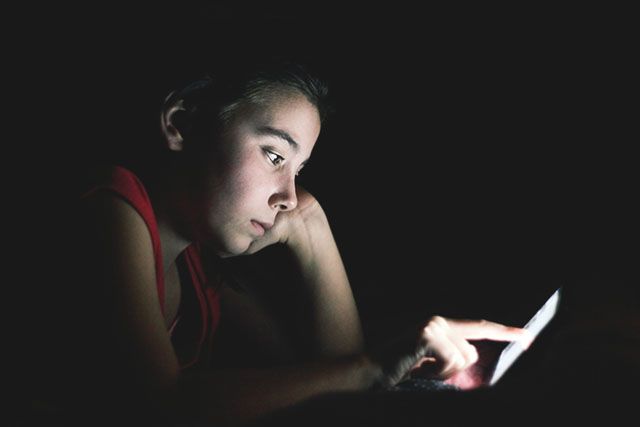
By Eva Holzl
What is screen time and what is considered too much? We should first answer this question as it’s something that many don’t recognize as an issue because it’s such a normal part of our modern society. Technology has advanced dramatically since Apple first released the “iPhone” nearly 17 years ago in 2007. What was once simply a way to make calls has now turned into a handheld computer that has occupied the attention of kids and adults alike for hours on end daily.
Screen time has proven to cause negative effects in general, but the real problem comes from the overuse of it. Studies have shown that tiredness, laziness, anxiety, low energy, back and/or neck problems, depression, and trouble sleeping are all symptoms of too much screen time. Being exposed to excessive “blue light,” a wavelength of light emitted by electronic devices, can contribute to eye cancer and growths on the clear covering over the white part of your eye, an article focusing on blue light said. While this is a tangible cause of too much screen time, there are also a lot of other negative factors associated with it.
One big problem is using screen time before bed. This can overstimulate the brain, making it harder to relax and fall asleep. Instead, reading a book or journaling is a better option. Screen time can also interrupt sleep schedules, which is another reason why tiredness or laziness may often occur during the day.
The average American spends about seven hours on electronics a day. This is a 50-minute increase since 2013. Almost 50 percent of 0-2-year-olds spend time in front of screens. This age is when brain development is just beginning and most crucial. Being in front of screens delays growth and causes trouble falling asleep at night or even taking naps during the day.
Too much screen time also means increased time spent on social media applications (apps) like Instagram, Facebook, Snapchat, and TikTok. These apps can create a secondary issue to the physical effects of screen time — emotional issues. Some examples of emotional issues are body image issues, addiction, privacy concerns, fear of missing out, and in more extreme cases cyberbullying, isolation, and depression. The advances in technology have made these social communication platforms accessible to just about anyone and, some argue, have decreased the amount of time people spend together which leads to increased physical isolation. There have been movies like Her depicting just how extreme this can be where a person starts to believe they are having a personal relationship with their phone. These types of movies show how addiction to phones can and will start to be a serious problem if it is not solved soon.
There are many effects of screen time, positive and negative but the negative has had the most major impact on people worldwide.